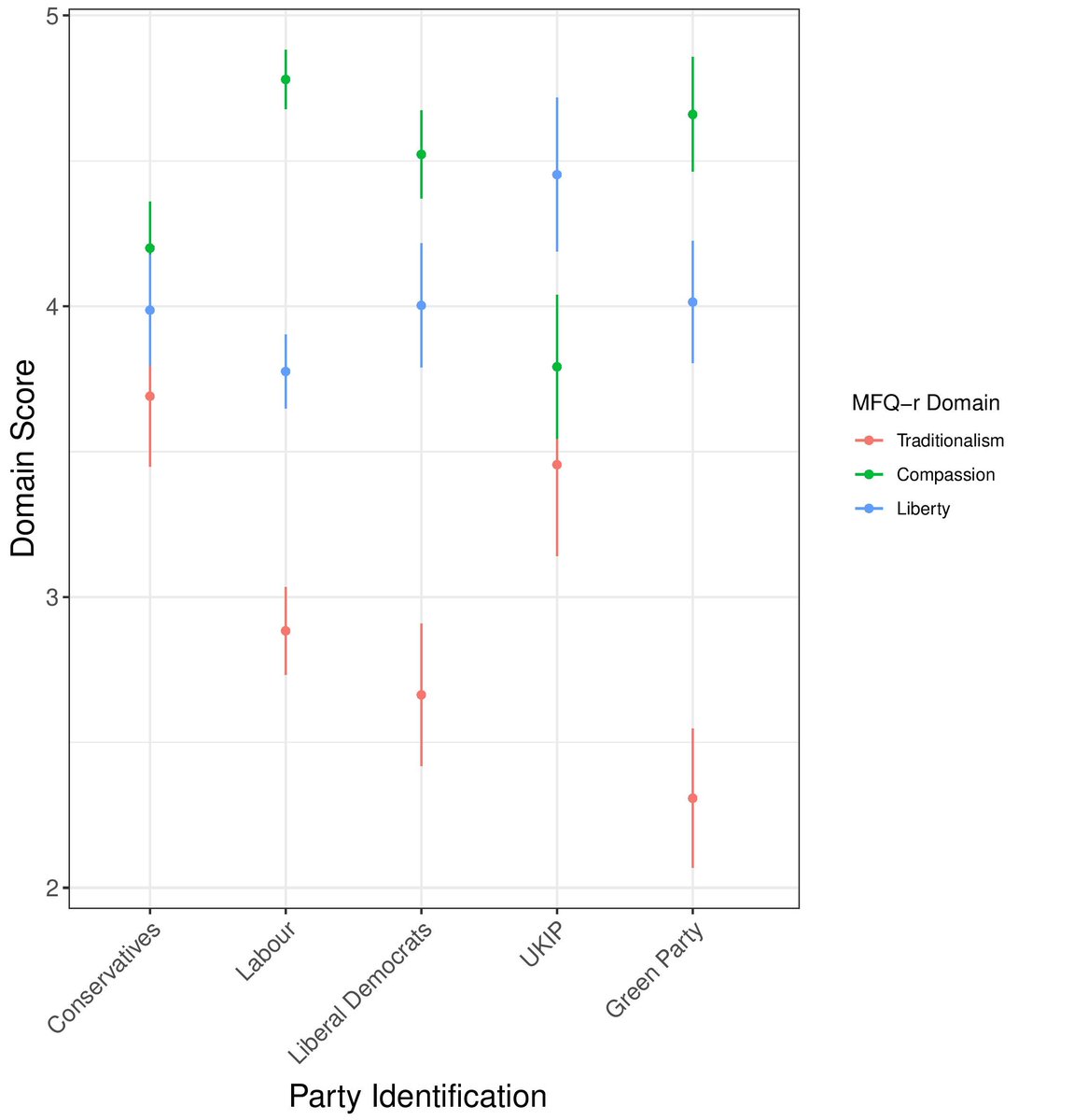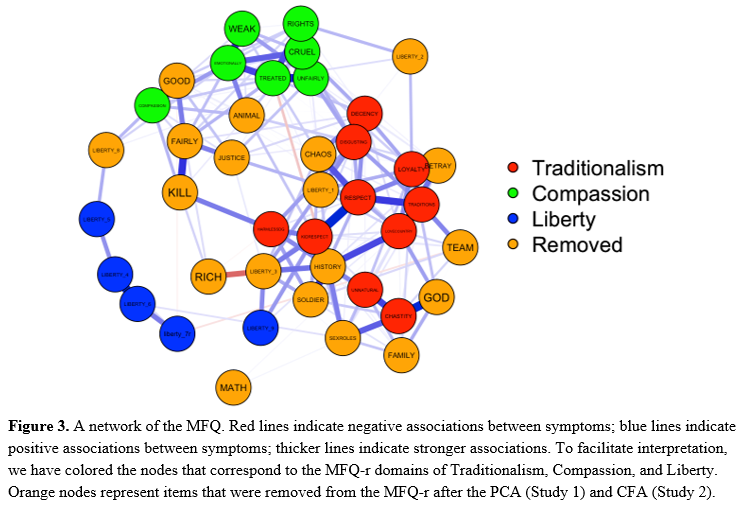Well, well, well... it looks like @Darren_Rhodes is now a social psychologist....
In this work, we report two studies through which we present a revised structure of the Moral Foundations Questionnaire.
https://psyarxiv.com/p5fj8
[very">https://psyarxiv.com/p5fj8&quo... brief thread]
I think most who have used the MFQ to measure moral intuitions knows of the scale& #39;s questionable psychometric properties. Poor internal consistency, unreliable model fit, and opaquely produced item lists are issues with the original measure. However, it is still widely used.
Nobody (to our knowledge) has undertaken a re-analysis of the MFQ while incorporating the Iyer et al. (2012) liberty items too. We had data from two large UK studies to allow us to do just that.
A combination of parallel and principal components analysis uncovered a three-factor structure, with moral domains of:
- Traditionalism
- Compassion
- Liberty
This confers to a two higher-order-factors view of the MFQ, with the addition of liberty.
- Traditionalism
- Compassion
- Liberty
This confers to a two higher-order-factors view of the MFQ, with the addition of liberty.
Traditionalism was associated with conservatism, compassion with liberalism, and liberty weakly in a rightward political direction. We found that Traditionalism and Liberty were associated with a vote in favour of #Brexit, consistent with my other work. https://onlinelibrary.wiley.com/doi/abs/10.1002/casp.2386">https://onlinelibrary.wiley.com/doi/abs/1...
There were also meaningful differences between party voters on each MFQ-r domain (and in the expected directions.
A confirmatory factor analysis in Study 2 found less-than-acceptable model fit, but fit statistics that are higher than those for a five- or six-factor solution for the MFQ. However, Darren conducted a supplementary network analysis that offered us support for the three-domains.
In short, we& #39;ve re-analysed the MFQ, and find an improved, if still imperfect, solution with three moral domains. We advocate for this as a temporary fix. The broader field should come together to come up with a more systematic measure of moral foundations (maybe via @Study_Swap)
As always, comments very welcome. Tagging people for potential interest.
@JonHaidt @LindaSkitka @MattMotyl @mjbsp @ImHardcory @HdxAcademy @PsychRabble
@JonHaidt @LindaSkitka @MattMotyl @mjbsp @ImHardcory @HdxAcademy @PsychRabble

 Read on Twitter
Read on Twitter



